Best 5 Features Of RPA: Career Opportunities In It
4.8 out of 5 based on 3247 votesLast updated on 18th Nov 2022 5.2K Views
- Bookmark

To know more about the features of Robotics Process Automation and career opportunities in this technology read this post.
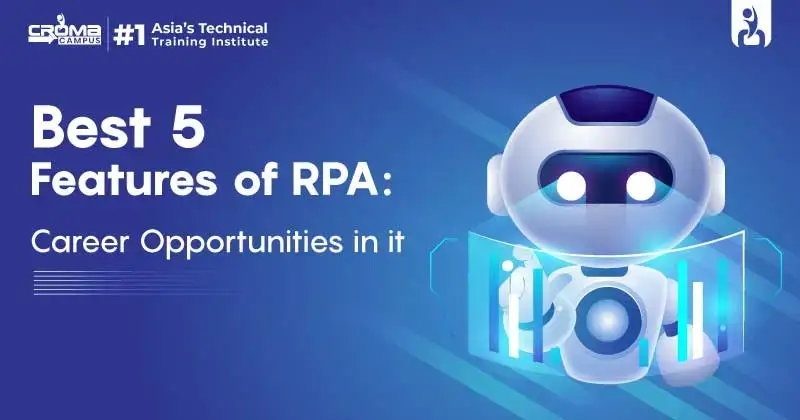
Robotic process automation (RPA) is a software technology that allows users to easily build, deploy, and manage software robots that emulate human actions. In addition, it is useful in automating various supply chain processes, such as data entry, predictive maintenance, and after-sales service support.
Features of RPA
RPA offers a rich-analytical suite useful for discovering the performance of the robot workforce. It helps in monitoring and managing the automated functions from a central console. It facilitates detailed operation analysis and allows the users to track the operations and determine issues in them. RPA solution requires no integration as everything is inbuilt into it and set right out of the box. In addition, it offers optimum security and provides an organization with strong user access management features. It ensures configuration and customization of encryption capabilities and helps in securing data types to defend against network interruption. It also offers detailed logging of users’ actions as well as each task executed. To further know about it, one can visit Robotics Process Automation Training Institute in Gurgaon. Apart from these, given below are some of the features of RPA.
Optical Character Recognition (OCR)
OCR facilitates simpler data extraction from documents and images. In addition, its screen scraping feature deals with capturing bitmap data from the system screen and cross-checking it against stored details. Along with just text recognition, it also possesses the capability to structure data while reading structured documents.
Actionable Intelligence
It refers to the ability to gain and apply knowledge as skills. AI and cognitive intelligence are the common features of RPA solutions. In addition, it consists of machine learning, computer vision, and cognitive automation to help bots improve decision-making over the period. It facilities the automation of most of the functionalities without any extra extension.
Note: Blue Prism is a leading robotic process automation tool streamlining business operations. Enroll in Blue Prism Online Training to master automation, enhance productivity, and elevate your career opportunities.
Debugging
RPA offers the capability to go through a process and adjust dynamically. In addition, it requires you to stop running to make the change and replicate the process. Furthermore, RPA tools allow you to change the variable values to test different scenarios without start and stopping the running.
Less Script or Script Less Automation
Modern RPA tools are scriptless and they are capable of automating any application in any department. This allows employees with less programming skills to create bots, just through GUI and different intuitive wizards. Further, this platform lowers the initial cost of installation, training as well as deployment.
Source Control
It facilitates secure storage of each version without the risk of being deleted. Furthermore, it allows developers to examine the difference between versions of a certain process to discover what has changed. Its control room feature allows scheduling bots, handling bot’s versions, and maintaining a log of user & bot activities.
Note: Automation Anywhere is a leading RPA tool streamlining business processes through intelligent automation. Enroll in Automation Anywhere Online Training to master bots, workflows, and advanced automation solutions for career growth.
Future Scope in RPA
Automation has already become a great part of organizations in deploying systems at present. This technology is useful in various industries like IT consulting, advisory firms, factories, and many more. In addition, it has shown tremendous growth in terms of offering career opportunities for skilled professionals. It has grown exponentially over the past few years, and its demand is increasing in the RPA market. RPA is capable of replacing repetitive, rule-based, mundane, manual digital tasks with software robots. Implementing it allows organizations to increase their workflow accuracy and efficiency. Due to its high popularity, many organizations have started investing in this technology.
Furthermore, a career in RPA can be beneficial as there may be a shortage of human resources in the future. Professionals in it get high salary packages in comparison to other fields. RPA can become the next trending technology, and learning it will offer you great opportunities. Many RPA Training Institutes in Delhi provide RPA training, and one can enroll in them to start a career in it. Given below are some of the job opportunities you can explore after learning RPA.
- Developer
- Project Manager
- Solution Architect
- Business Analyst
- Associate
- Process Consultant
Relevant RPA Online Courses:
Conclusion
RPA is a software technology that allows users to easily build, deploy, and manage software robots that emulate human actions. In addition, it offers a rich analytical suite that is useful for discovering the performance of the robot workforce. RPA comes with various functions like OCR, Debugging, Actionable Intelligence, source control, and many more. Furthermore, it has shown tremendous growth in terms of offering career opportunities for skilled professionals. The RPA Training Institute in Noida offers expert-led courses to help you build a stable career in automation. With vast industry applications, RPA ensures a high-paying job and future growth opportunities. Enroll now for a promising career in automation
Subscribe For Free Demo
Free Demo for Corporate & Online Trainings.
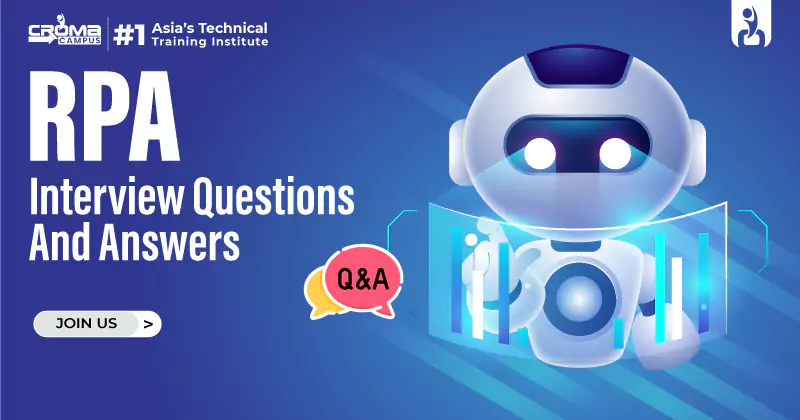
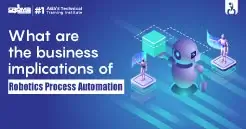
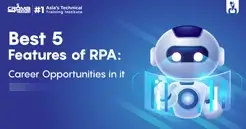
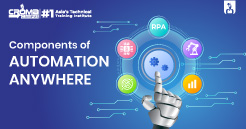

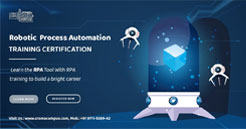
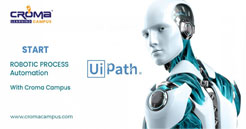
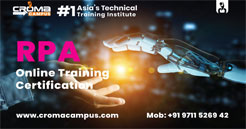
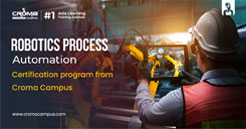
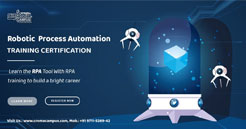
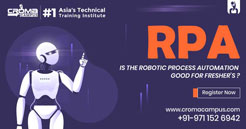














.webp)
.webp)

.png)















